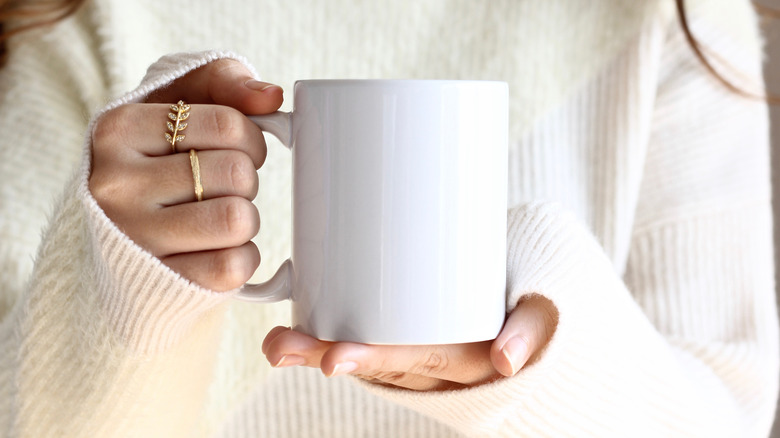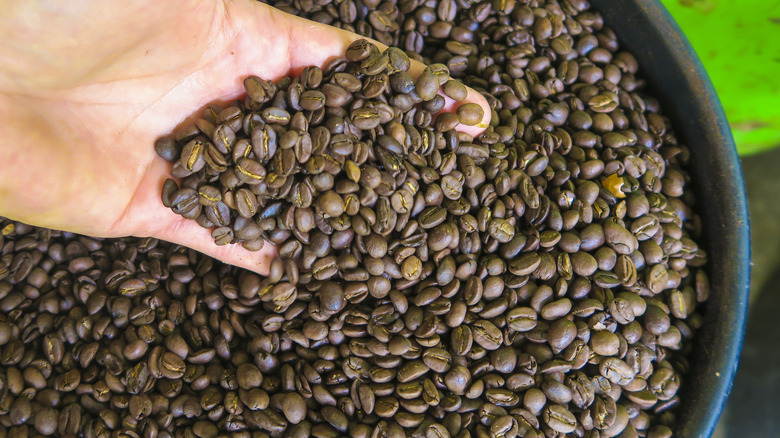A Cup Of Coffee May Soon Be Considered An Indulgence In Europe
In today's world, coffee is as much a staple as flour or sugar. If you've ever uttered the phrase, "Don't talk to me until I've had my coffee," then you know what we're talking about here. And you aren't alone. From 2020 to 2021, 102.1 million 60-kilogram bags of Arabica coffee beans were produced worldwide, according to Statista. But, 2022 has shaped up to be a much tougher year for coffee fans.
At the beginning of the year, analysts predicted that it may be harder than ever to find a cup of coffee in 2022 as drought and other climate conditions hit Brazil, the top global Arabica coffee bean producer, drastically reducing their output, per CNBC. Pandemic and international conflict-induced global supply constraints also created a haphazard flow of consumer demand, says the news outlet. By August, according to data compiled by Tasting Table from the U.S. Bureau of Labor Statistics, the price of ground coffee in the U.S. had increased by a whopping 39% from 2019.
Then, in late August, Vietnam (which grows more Robusta coffee beans than anywhere else in the world) began running out of its hoarded bean reserve, via Bloomberg, causing prices to jump by another 17%. Now, there's a new update in the coffee saga, and it isn't pretty. Earlier this week, the European Union statistics office released data that says a cup of coffee may soon be considered an indulgence in Europe.
Suddenly not just a commodity
Per the data from the Euro office, via Reuters, coffee prices in the E.U. saw a 16.9% increase during August 2022 alone. These figures come from averaged price increases across all countries in the E.U. At the top of the spectrum, however, coffee prices in Finland increased by 43.6%, and 39.9% in Lithuania. Whole milk prices also jumped by 24.3%, and sugar spiked by a staggering 33.4%. In Poland, sugar was also 109.2% more expensive than in August 2021.
In September, inflation in the 19 countries that make up the eurozone hit a record 10%, says The New York Times, so it's no wonder that coffee is an unfortunate part of the collateral. Luckily, the U.S. inflation story is looking like a different tale. In July, PBS reported that U.S. inflation hit 9.1%, the highest in 40 years — and inflation in the eurozone was then "at its highest level since recordkeeping for the euro began in 1997." But since then, U.S. inflation has been steadily inching back down.
In August it fell to 8.3%, the lowest rate in four months, says Trading Economics. Yet, U.S. rent price inflation is up the most since 1984 (6.2%), and food inflation is the highest it's been since 1979 (11.4%). Considering the current data is even grimmer in the E.U., what do these figures mean for the future of European coffee fans' morning cuppa joe? It looks like, for now, we'll have to wait and see.

